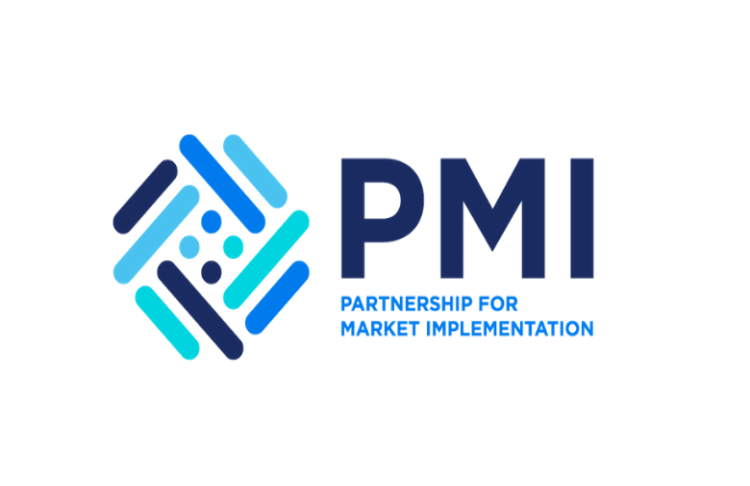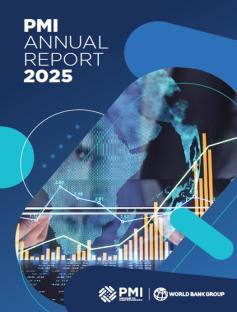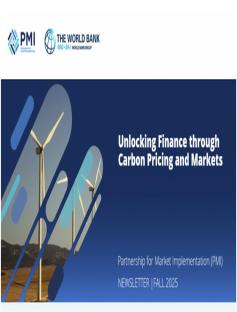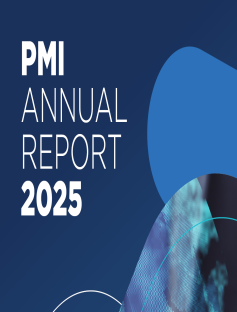The Partnership will get underway in July 2020 to help countries embarking on carbon pricing move from readiness to rollout
MADRID, Spain, December 10, 2019 – The Partnership for Market Implementation was unveiled today, on the sidelines of COP25, by the World Bank and country partners including Canada, Chile, Germany, Japan, Norway, Spain, and the United Kingdom. The Partnership will provide technical assistance to countries to design, pilot and implement carbon pricing and market instruments. It will support the direct implementation of carbon pricing in at least 10 developing countries and help a further 20 countries get ready to do so.
“Well-designed carbon pricing instruments can be a transformative part of the climate action toolkit. Over half of countries worldwide are thinking about how carbon pricing can help them meet their climate targets”, said Laura Tuck, Vice President of Sustainable Development, World Bank. “This Partnership can help countries wanting to encourage climate action through strong carbon markets to get this right, building on what we know works, sharing experiences and best practices, and helping them ensure their citizens are on board with new policies.”
The Partnership is a response to increased demand for carbon pricing implementation support and knowledge exchange. It builds on the success of the World Bank’s long-standing program, the Partnership for Market Readiness, that has provided targeted technical assistance on carbon pricing to over 20 emerging economies and developing countries, collectively accounting for over 40 percent of global greenhouse gas emissions. The Partnership is expected to begin operations in July 2020 when it anticipates having reached US$100 million in capitalization and, over its 10-year program, will have a total capitalization target of US$250 million.
Germany’s Minister for the Environment, Svenja Schulze said, “The PMI is well-positioned to step-up the climate action agenda to the next level of ambition for reaching the goals of the Paris Agreement. Thus, I am pleased to announce for Germany a pledge of 10 million Euros [US$11 million] to the program.”
The Partnership aims to:
- Support countries and jurisdictions in the development and implementation of carbon pricing instruments;
- Assist countries to cooperate with each other, via the operationalization of Article 6 of the Paris Agreement;
- Help countries identify and implement best practices and, where relevant, achieve compatibility with other countries’ carbon pricing and markets;
- Inform national and international policy discussions on carbon pricing, including by providing a platform for collective innovation on instruments; and
- Develop a comprehensive knowledge base and facilitate information exchange on carbon pricing instruments and proven market mechanisms.
###
Quotes from Partners:
“The PMR has been key in building capacities on carbon pricing in our country, including the mechanisms to track greenhouse gas emissions and mitigation outcomes. By creating new knowledge and fostering a critical mass of stakeholders, it has also supported public policies related to carbon pricing and has raised awareness on the relevance of market instruments for climate mitigation. We believe that cost-effective mechanisms, like offsets and emissions trading, can play a relevant role in accelerating progress towards NDC implementation, carbon neutrality and social welfare. New programs such as the PMI come at a very good moment for Chile and other implementing countries, since sustained efforts are essential for our climate policy where carbon pricing is a core element”. Juan Carlos Jobet, Minister of Energy, Chile
“As a recipient of the PMR technical assistance, Vietnam has not only benefited from the capacity built in the country for carbon market instrument, but the PMR has also provided a great platform for knowledge sharing and exchange with many other countries. As we now move towards consolidating our strategy on NDC implementation including use of carbon pricing tools, a program like the PMI is very timely and relevant”. Trần Hồng Hà, Minister of Natural Resources and Environment, Vietnam
“Spain was an early supporter of PMR, which we believe has provided a strong foundation for developing carbon pricing and markets in many countries. Therefore, it is gratifying to see this program take the next ambitious step of raising the bar on implementing a meaningful and fair price on carbon. As COP25 host, we are proud to endorse this initiative and look forward to working with the World Bank and partner countries to support this agenda.” Teresa Ribera, Minister for the Ecological Transition, Spain
“The Government of Canada has already begun implementing our climate plan that includes over 50 different measures. A central part of our plan involves putting a price on pollution and rebating the money back to families. Here at COP25, Canada is proud to work with other supporters of pricing pollution to help grow the international momentum for this important policy tool, and for other financial tools that help fight climate change. This new Partnership lead by the World Bank will help to advance job creation and emissions reductions in developing countries.” Jonathan Wilkinson, Minister of Environment and Climate Change
Notes to Editors:
23 countries have benefited from technical assistance under the Partnership for Market Readiness. They are: Argentina, Brazil, Chile, China, Colombia, Costa Rica, Cote d'Ivoire, India, Indonesia, Jordan, Kazakhstan, Mexico, Morocco, Panama, Peru, Philippines, South Africa, Sri Lanka, Thailand, Tunisia, Turkey, Ukraine, Vietnam.
The Partnership for Market Implementation, which will be operational from July 2020, will help countries move from readiness to rollout of carbon pricing, while supporting new countries that are exploring how carbon pricing can support low-carbon development pathways.




